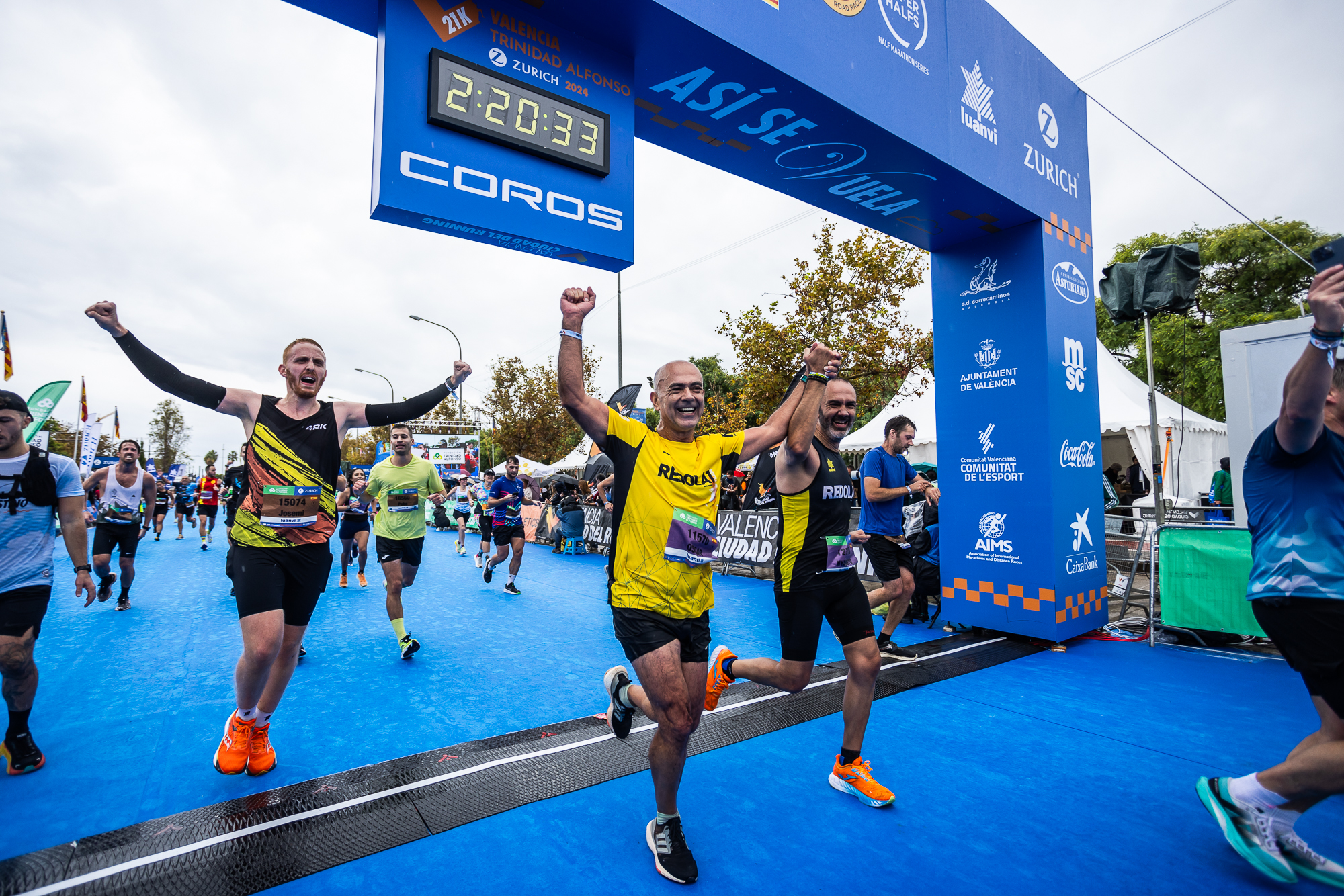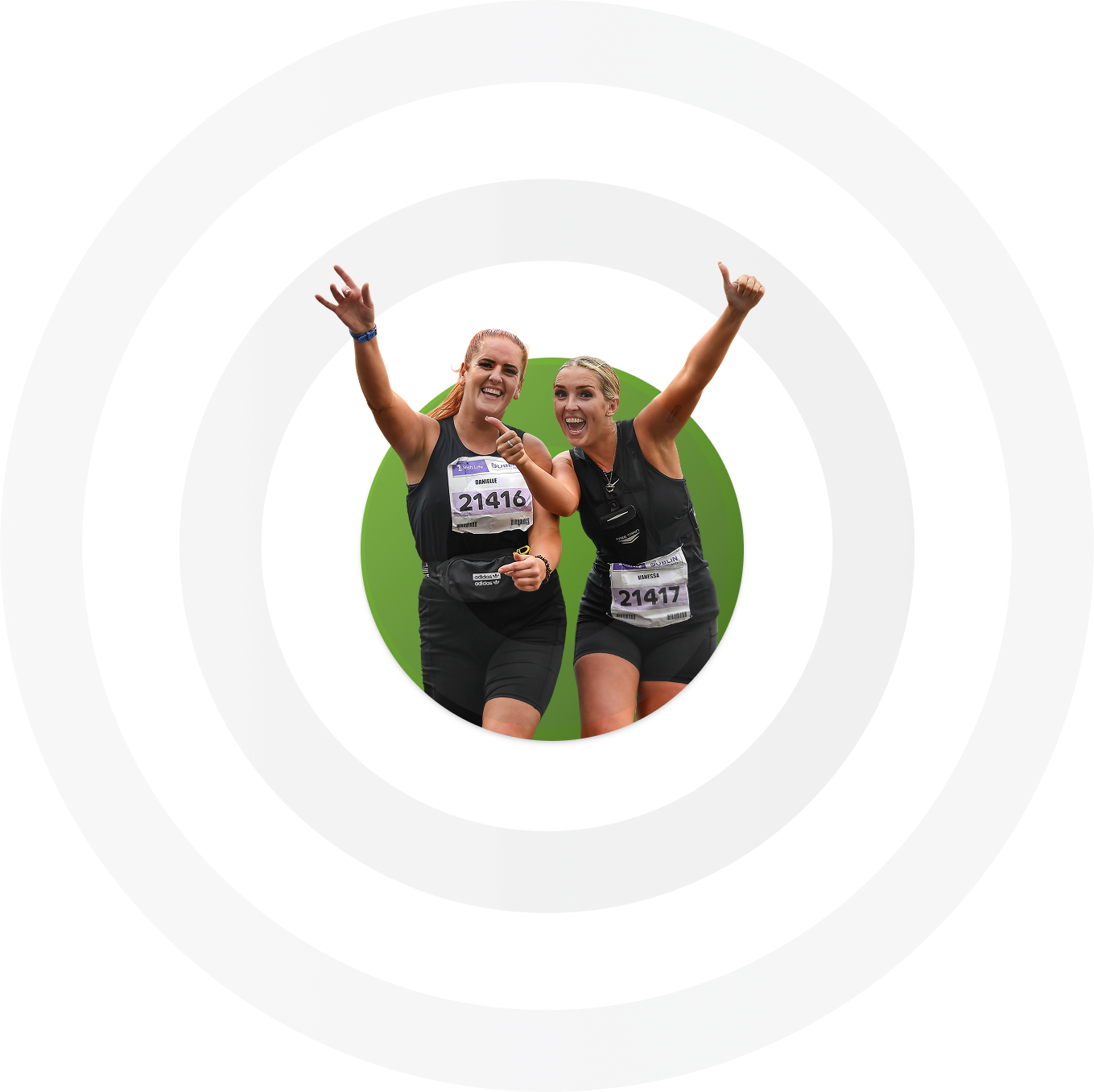Confused about how much water a runner should drink? Avoiding dehydration is key when running but it's also important to avoid drinking too much, which in some circumstances can be fatal.
It is widely accepted that the average person needs 2 to 2.5 litres (approx 70-90 fl oz) of fluid per day to allow the body to function normally. But not all that needs to come from drinks, with experts suggesting that at least a third of our daily fluid requirements are met by food.
According to Professor Heinz Valtin, a kidney specialist and the author of the report in the American Journal of Physiology on water consumption, there is no evidence to support the well-known ‘2 litres a day’ mantra. ‘I’m not suggesting we don’t need to meet certain daily fluid requirements,’ he says. ‘I’m merely questioning the notion that each and every human being should be consuming eight glasses of it a day.’
Caffeine is a diuretic, but the fluid provided in the drink is enough to offset its diuretic effect.
And he's not alone in thinking this. Professor Ron Maughan, one of the UK’s top hydration researchers agrees that drinking 2 litres of water, without fail, over and above other fluid intake is not necessary. Pretty much any drink at all, whether it be juice, milk, soft drinks, tea and coffee , can count towards the volume required. ‘Caffeine is a diuretic, but the fluid provided in the drink is enough to offset its diuretic effect,’ says Maughan. ‘Take 60mg of caffeine and add it to a cupful of water and milk, and you’ll likely end up more hydrated than if you hadn’t drunk it.’
Maughan also points out that fluid comes in many forms, not just bottles and glasses. If you ate a large slice of watermelon , for example, you'd be taking a substantial amount of water on board, reducing the need to consume water in its pure form.
Water loss effects of running
Valtin and Maughan both agree that regular activity or running necessitates a greater intake of fluid. Strenuous running can generate 20 times more heat than being at rest. We have to dissipate that heat somehow, to regulate and stabilize body temperature, and the body’s favoured method of losing heat is through sweating, which, of course, causes water loss.
During a high-intensity workout, such as spinning or running, you could lose 500 to 1000ml (approx 18-35 fl oz) per hour.
During a high-intensity workout, such as spinning or running, you could lose 500 to 1000ml (approx 18-35 fl oz) per hour, and if this fluid isn’t replenished, dehydration will set in, causing a raised heart rate, increased blood pressure, a far higher rate of perception of effort, and ultimately, a decline in performance (even a dehydration level of 2 per cent can have a noticeable effect on your sporting prowess).
To account for fluid loss resulting from exercise, you need to think about drinking not just after training, but before and during the session, too. If you start your training session under-hydrated, you’ll be fighting a losing battle trying to compensate later. And men be warned: research by world fitness organization IDEA shows that men are more likely to be dehydrated at the start of a workout than women.
Hydration strategy
Your hydration strategy should begin long before you start lacing up your running shoes — be aware of your food and drink intake throughout the day. Then consume 250 to 500ml of fluid 15 to 30 minutes before your running workout, depending on your tolerance of fluids, and the temperature and humidity. It doesn’t have to be all in one go…
During running exercise, aim to drink 100 to 200ml every 15 minutes.
During running exercise, aim to drink 100 to 200ml every 15 minutes. If you are exercising for an hour or more, isotonic sports drinks, containing electrolytes such as salt and potassium, as well as easily ingested carbohydrate and water, are more effective at delaying fatigue and enhancing performance than plain water.
Don’t leave it too late to rehydrate after running
In an ideal world, you would consume the same volume of fluid after a running workout that you lost through sweating, but studies show that replacing 80 per cent of what we’ve lost is a more achievable target. You can get a good idea of this volume through weighing yourself before and after a training session to see how much weight has been lost (yes, it’s all fluid — not fat!). More often than not though, this isn’t practical, so you need to follow some general guidelines about how much to consume.
When your running session is over, regardless of its length or intensity, drink at least 500ml (3.5 fl oz) of fluid. After a tough session, you may want to rehydrate with a sports drink, or a carbohydrate-rich fluid such as orange juice or fruit flavored concentrate. If you exercised for an hour or more, aim for a litre and keep drinking regularly for the next few hours until your urine is the color of pale straw or lighter.
Over-hydrating or hyponatremia
There’s been a lot of media coverage regarding the issue of drinking water during endurance running events, following a number of cases of ‘hyponatremia’, a potentially fatal condition in which the sodium concentration in the blood drops excessively due to too much water in the bloodstream.
The ‘drink, drink, drink’ message simply got interpreted a little too zealously and ended up causing some people to take on a lot more fluid than they needed. A study by researchers at the Memorial Hermann Healthcare Organisation in Houston, Texas found that 21 of the 5,000 runners in the Houston Marathon got hyponatremia. The longer the runners took to complete the race, the more at risk they were, as they tended to stop at every water station along the course. Research thus far suggests that women are more vulnerable to hyponatremia than men, probably due to their smaller body size.
To avoid being at risk of hyponatremia, try to consume isotonic drinks rather than water during endurance workouts or long runs, to prevent a drop in sodium . You could even try consuming a salty snack, such as pretzels or Ryvita. And sip, rather than glug fluids down. It’s also a good idea to drink on a schedule, say, setting your sports watch to bleep every 15 minutes, rather than drinking unconsciously and unwittingly having too much.
Use your head when running
Don't go for a water strategy that's going to leave you sloshing around like a waterbed. If you feel thirsty, then drink. If your stomach is already full, then don’t. A report in the British Medical Journal warned that over-consumption of fluid (either water or sports drinks) before, during, or after exercise is unnecessary and can have a potentially fatal outcome, while a study by researchers at the University of Cape Town found that cyclists who were forced to replace their total sweat loss in fluid intake actually performed worse than when they drank instinctively. So it's true that you can have too much of a good thing, even when it comes to water.
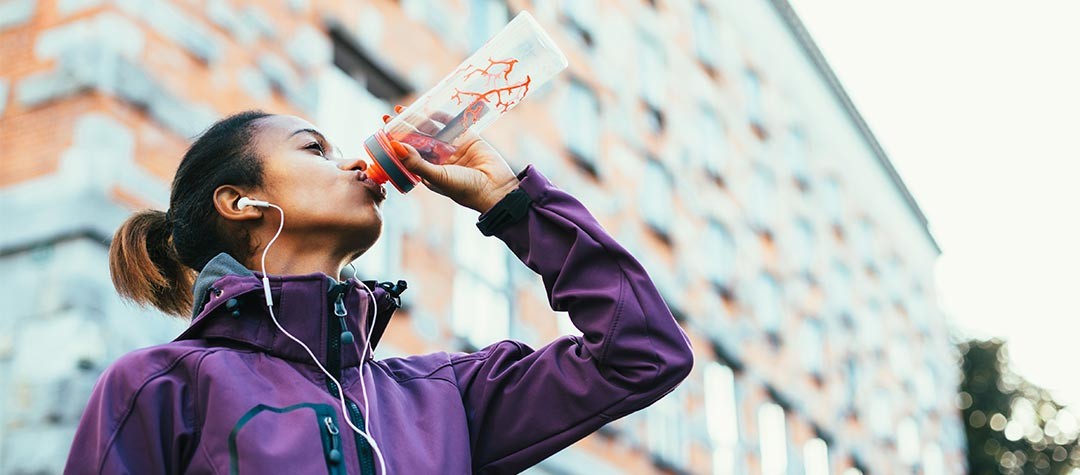
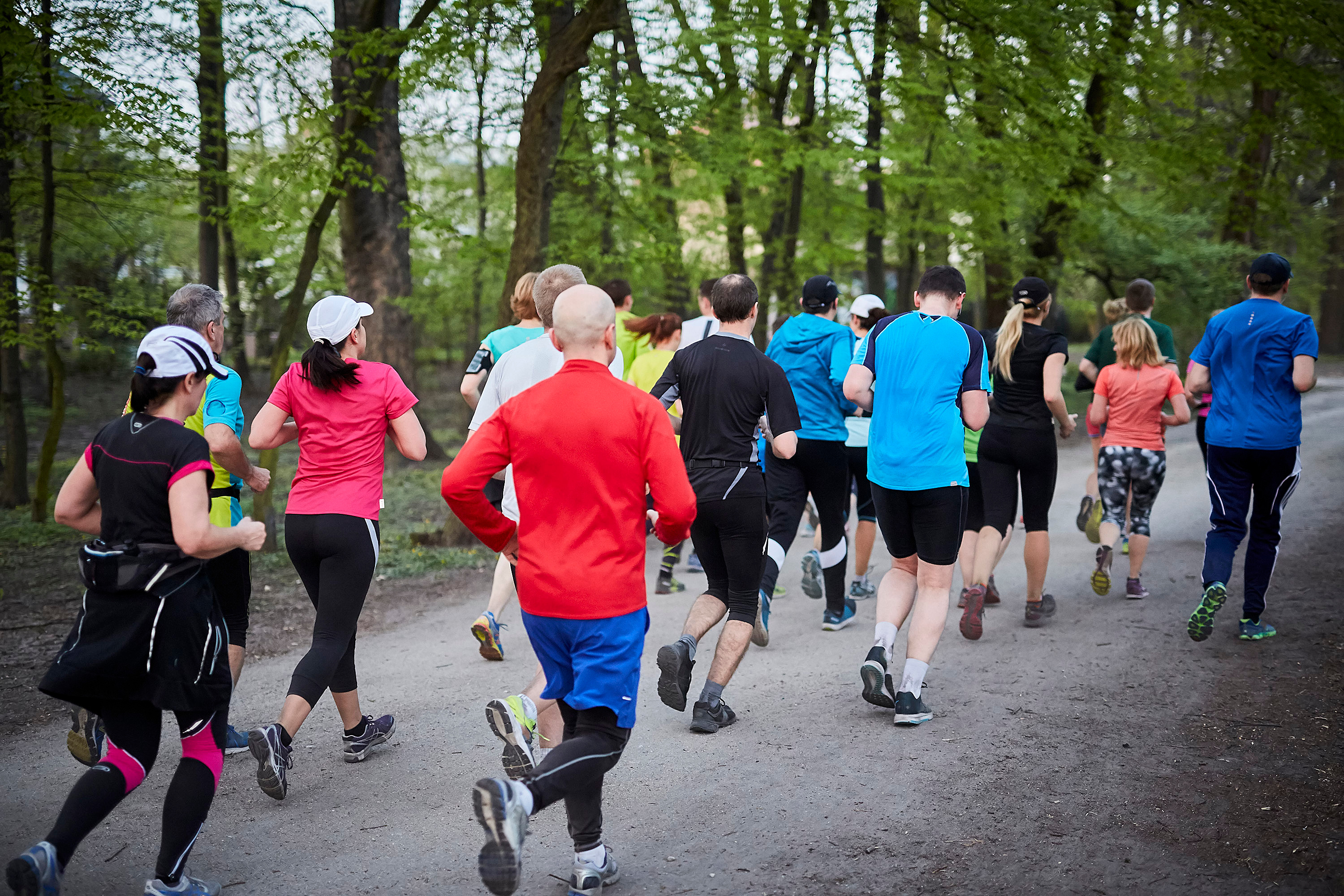
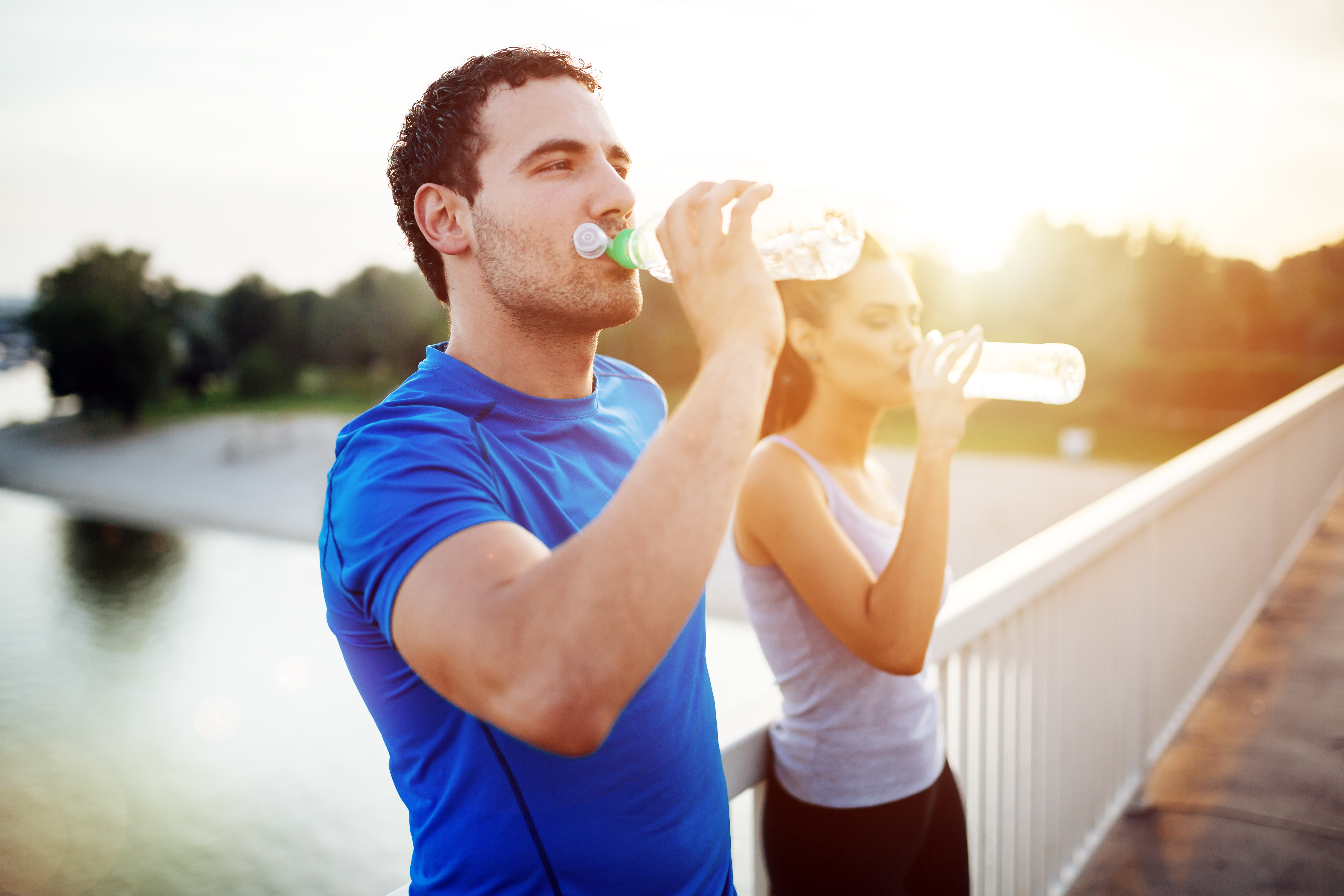
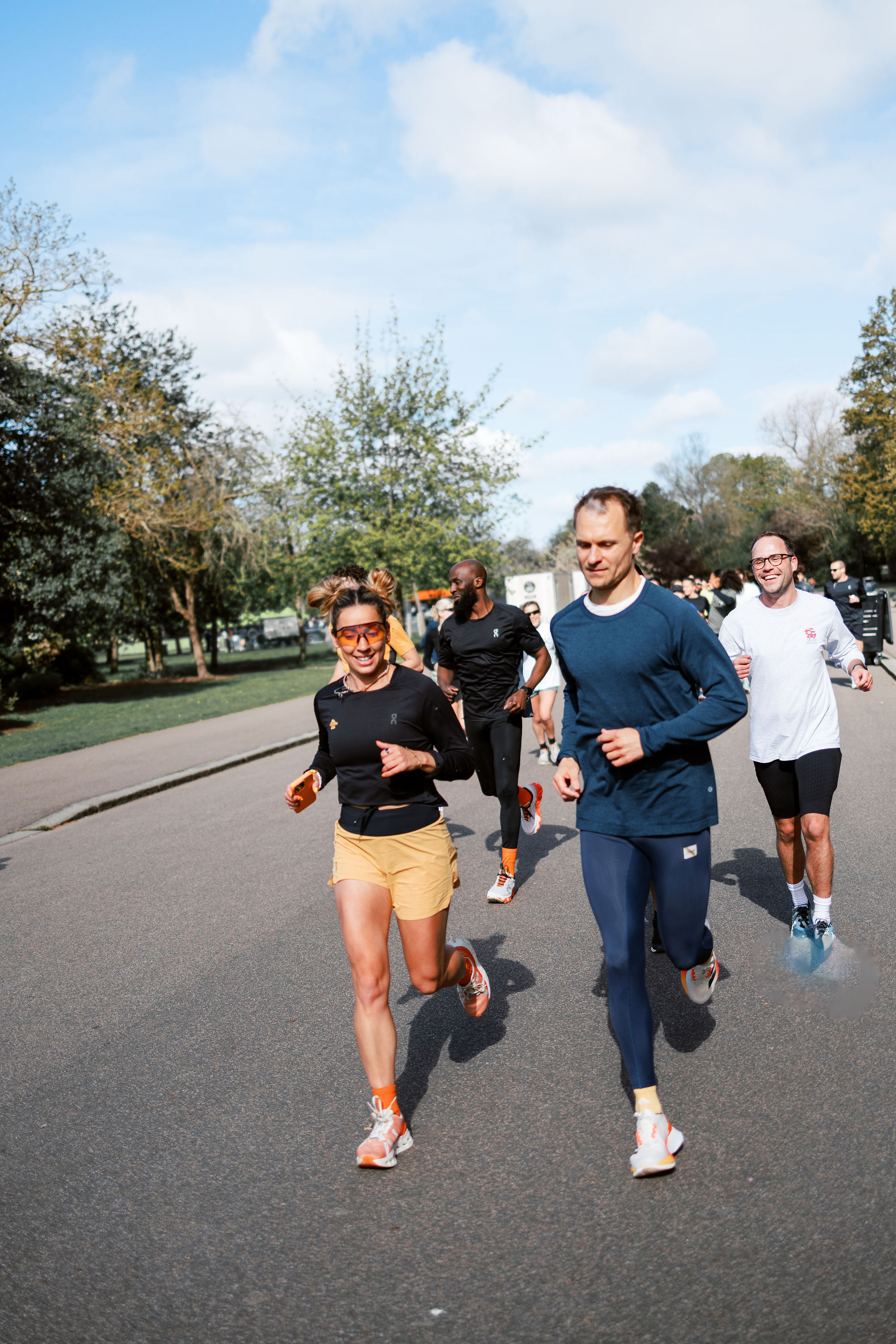

.png)

